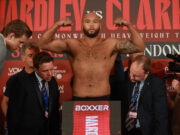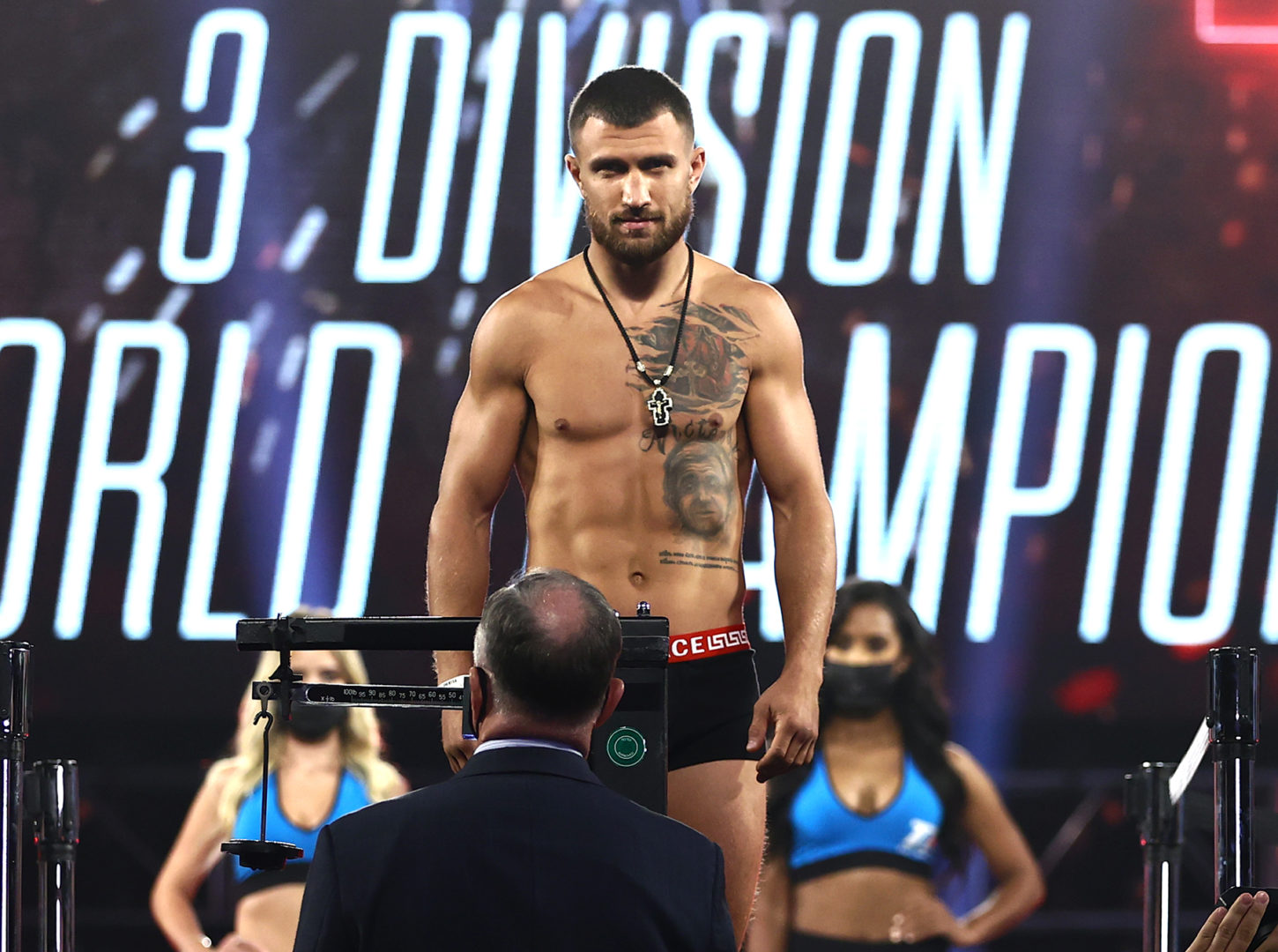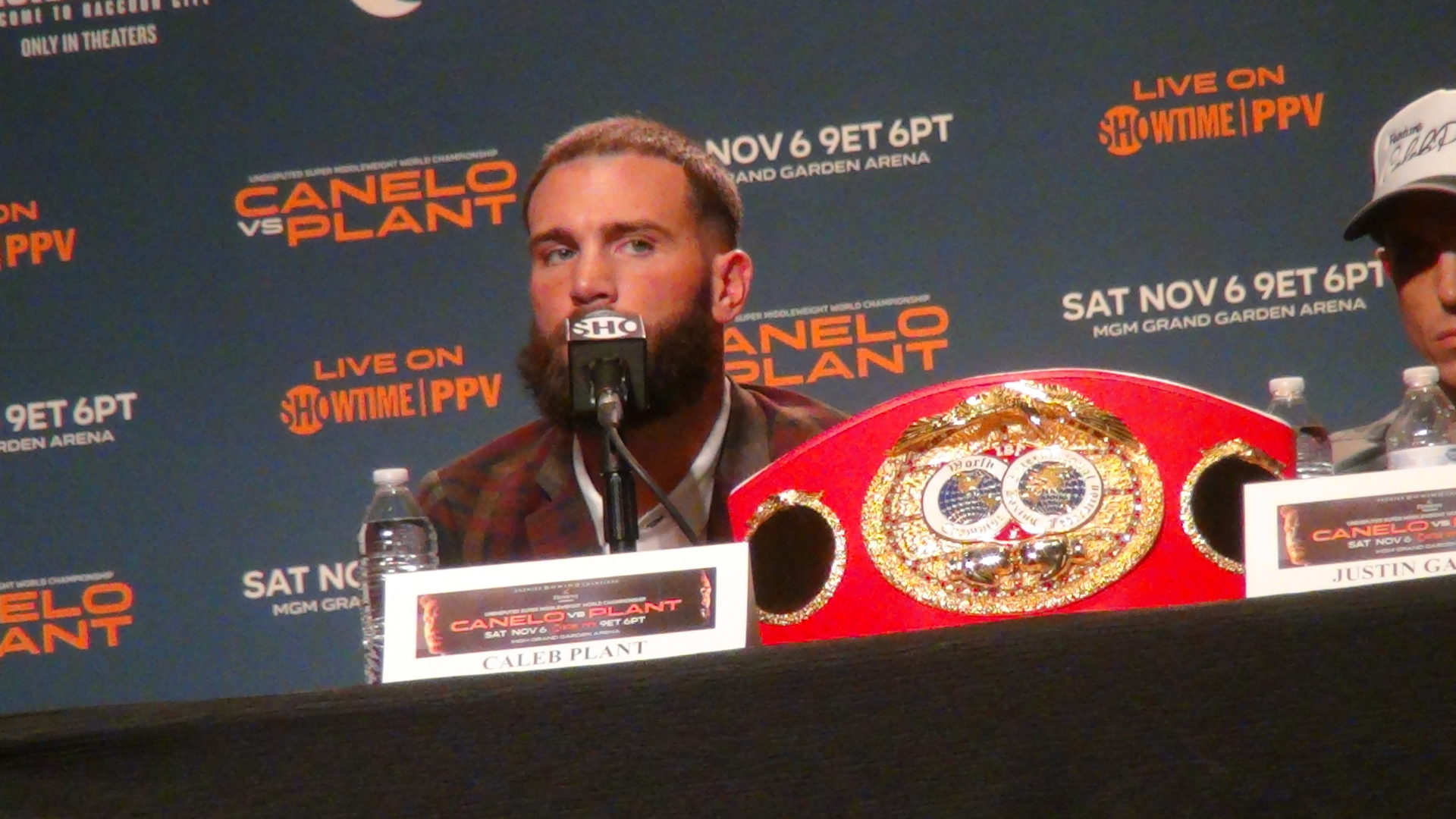There is no such thing as an objective scorecard in boxing. Using that assumption, let’s take a look at – wait, what’s that? No consensus on the point above. Shucks. Let’s work it over a bit, then, break it in and see if we can use it later.
Where do you look while scoring a fight? “In the neutral plane exactly between the combatants, following each punch from its entry into the unoccupied space to its conclusion.” In that case, maybe you are capable of rendering an objective scorecard. It’s not too practical, though, is it?
Official scorekeepers are just about the only people situated at a prizefight in a place that allows them perfectly neutral eyes and minds. If a person is on press row, he is already too far from the fight and necessarily watching a panorama of sorts that features both fighters in a shifting focus that depends on whatever narrative steers it. If a person is watching on television, he is subjected to a number of narratives, both his own and others’, that affect the very texture of what his mind does with the images his eyes send it.
Do official scorekeepers unfailingly employ their unique position to render perfectly objective tallies? Well. These are people with opinions and narratives of their own, and considerations more than the rest of us. That is, if a Clark County Justice of the Peace can be persuaded by economic considerations to delay a prizefighter’s sentence, as Melissa Saragosa did in the case of Floyd Mayweather Jr., Friday, do believe an athletic commission official is more persuadable still.
This is not written to or about official scorekeepers, though. This is for a more important observer: the boxing aficionado. Our beloved sport needs this person to be a thinker, not a knower, and a constant skeptic, checking his own objectivity as often and vigorously as he checks others’.
American boxing fans, like Americans in general, can be well-divided into thinkers and knowers, with an unseemly majority being knowers – folks who pursue consensus more than discovery. You are familiar with such people; every argument comprises an obscure anecdote recently heard and devolves into personal challenges. Most conversations are Shakespearean in nature, as the parties talk past one another, speechifying more than inquiring. Rarely is a phrase like “I’m not sure” or “That might change my mind” or “I hadn’t considered it” uttered.
Thinkers tend to make better company. They have postmodern moments when the very gears of language grind and consensus on something slight as the word “apple” might seem impossible, but they serve the valuable function of undermining others’ certainty. And if there is a lesson to be mined from the Great Recession it is likely that certainty benefits very few of us.
More pertinent to the boxing aficionado’s experience, though, is this: Most of what you know about boxing is probably wrong anyway. There is consensus, of course, lots of it. There are opinion shapers. But those of us in that racket are often as unwitting a group of pawns as can be found in any field. Boxing is a stew of dissembling free agents, seasoned by short-sighted greed. The truth is not out there, Agent Mulder; the only trustworthy place in boxing is between its ropes.
How we look at what happens between the ropes, then, is probably the most important skill we can cultivate as interested observers. We bring filters galore to the act, yes. (Who among us isn’t predisposed to cheering for a fighter who looks like we do?) We should be skeptical of those filters, going in.
There may be no better act of skepticism in the observation of boxing than scoring a round even, 10-10. It is a way of saying you did not know who would win the round when it began, you approached your task of observation innocent of narrative, and neither combatant did enough to convince you someone won the round by its end. That’s not indecisive; it’s skeptical. It’s also a heck of a sight better than knowing who won the round, before reviewing the round a week later and knowing the other guy won the round, and then reviewing the round a year later and knowing that either guy may have won the round.
Maybe your peers on press row will call you irresolute. Maybe your friends gathered round the television will think you inept at the manly art of deciding. But you may also find the stress of awaiting discovery is not bad as the stress of contorting yourself into consensus.
What the hell does that mean?
Round 1 of Pacquiao-Marquez III should suffice as an example. The thinker began the round saying, “Neither guy will win this round unless someone decisively wins this round.” And he marked the round even, 10-10, when he found himself entirely unconvinced by the fight’s opening three minutes.
The knower, his mind already rent with the pressure of having to pick a winner, came to his seat under the spell of a narrative that likely went: Manny Pacquiao will win this fight, maybe by knockout, and most every act Pacquiao takes will bring him closer to this outcome. Did the knower score round 1 for Pacquiao? Not necessarily. He may well have seen his narrative confirmed; Pacquiao’s lack of aggressiveness evincing a calculated measurement of Juan Manuel Marquez. Or he may have found his narrative disproved and decided Marquez’s remaining upright and unmarked was reason to give Marquez the round.
Point is, no aficionado should watch the first round of any fight burdened by a need to score it for either fighter. Most opening rounds in most championship prizefights are uneventful, even affairs.
I believe this to be true, but I might be wrong.
Greater authority returns next week.
Bart Barry can be reached at bart.barrys.email (at) gmail.com





















